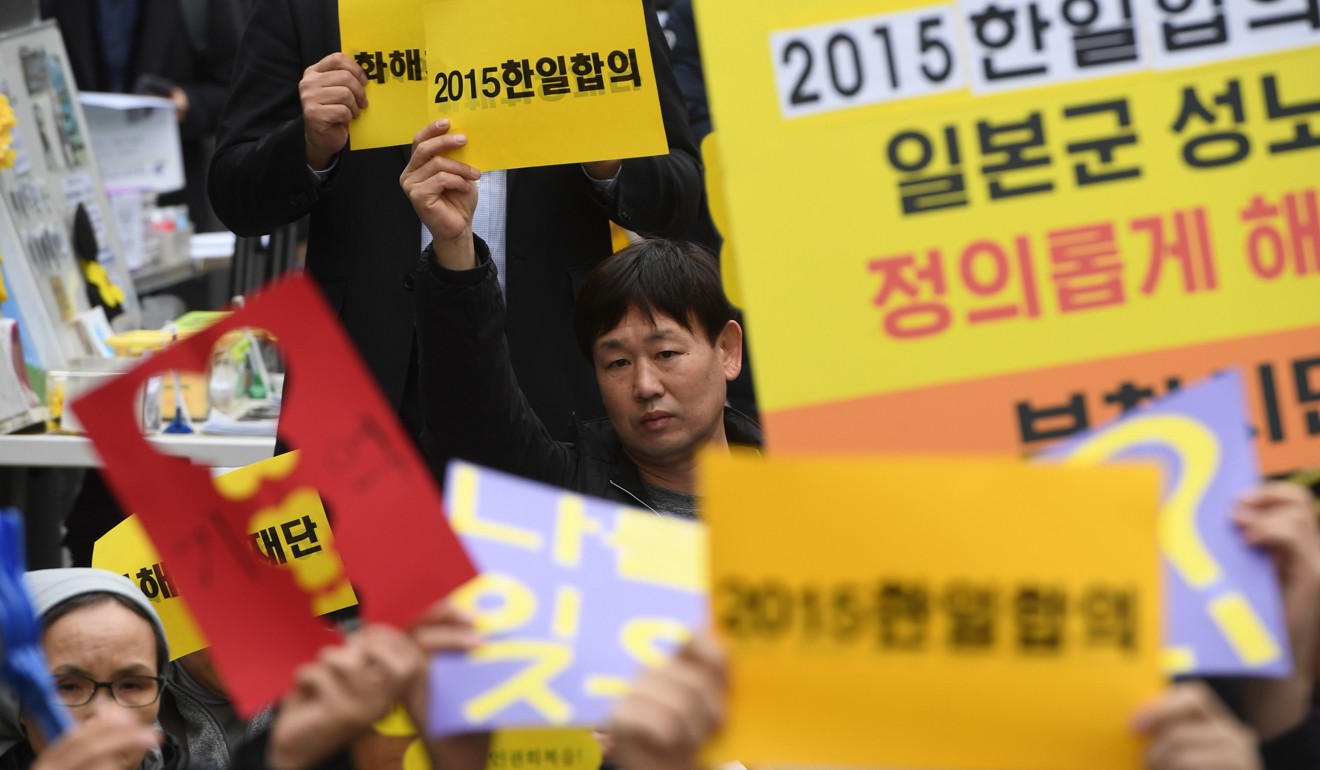
Japan Times denies changing editorial policy to meet Prime Minister Shinzo Abe’s stance on wartime ‘comfort women’
- Rare statement from country’s oldest English-language newspaper denies bowing to external pressure
- Editorial note appeared at the end of an article about South Korea’s Supreme Court order for Mitsubishi Heavy Industries to pay damages to two groups of South Koreans for wartime forced labour
The Japan Times said on Friday in a full-page notice that its editorial policy remains the same despite its recent change in descriptions of wartime “comfort women” and forced labourers from the Korean peninsula, denying that it has bowed to external pressure.
The rare announcement by the country’s oldest English-language newspaper came amid sharp reactions on social media and some overseas media reports that the change in the terms it uses was in line with the conservative stance of Prime Minister Shinzo Abe’s government.
Japan Times Executive Editor Hiroyasu Mizuno said in the notice: “I categorically deny any accusations that The Japan Times has bowed to external pressure,” while apologising to readers and those working for the company for damaging the relationship of trust.

The change in the descriptions of wartime “comfort women” and forced labourers has triggered an outcry inside the publisher and some readers have said they would quit subscribing to the daily.
The November 30 editor’s note in question said: “The term ‘forced labour’ has been used to refer to labourers who were recruited before and during World War II to work for Japanese companies. However, because the conditions they worked under or how these workers were recruited varies, we will henceforth refer to them as ‘wartime labourers.’”
As for “comfort women”, the paper similarly said it “will refer to them as ‘women who worked in wartime brothels, including those who did so against their will, to provide sex to Japanese soldiers’” because their experiences “varied widely”.
The note appeared at the end of an article about South Korea’s Supreme Court order for Mitsubishi Heavy Industries to pay damages to two groups of South Koreans for wartime forced labour.
Mizuno said in the notice on Friday, “Given the complexity, the brief note was insufficient, and therefore led to a number of assumptions about the direction of The Japan Times.”
The Japan Times, founded in 1897, became a wholly-owned subsidiary of News2u Corporation in June last year.

